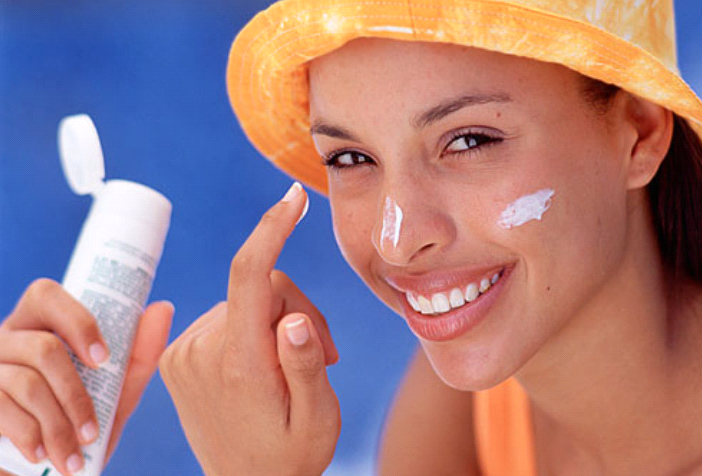Sunscreen is one of the least expensive types of dermatology products but it plays a very important role in the health of your skin. Sunscreens work by reflecting, scattering or absorbing UV rays that can damage the skin. There are many different types of sunscreens available which contain a wide variety of ingredients. Choosing the right sunscreen will depend upon an individual’s lifestyle and the types of activities that they will participate in outdoors. No matter which type is chosen it is essential that it provides protection from both UVA and UVB rays.
Two Basic Types of Sunscreens
Sunscreens can be categorized as either a physical blocker or a chemical blocker. Physical blockers work because they reflect the UV radiation put off by the sun. The main ingredients in a physical blocker are titanium dioxide and zinc oxide. A physical blocker is effective for protecting the skin from both UVB and UVA radiation. A physical blocker is a good choice for those who desire to use chemical free sunscreen products. These are made from internal metals that will stay on the external portions of the skin and not be absorbed into the body. They also do not wear off as fast as the chemical blockers do but they will wash off the skin more easily when the body is in the water or sweating.
Chemical blockers are sunscreens that use chemical substances to absorb UV radiation that has a specific wavelength. Ingredients include menthyl anthranilate, avobensone and benzophenones. On the label, benzophenones may be listed separately as oxybenzone, sulisobenzone or dioxybenzone. Sunscreens that contain chemical blockers will protect against UVA and UVB radiation.
Composition of Sunscreens
Which type of sunscreen used will depend largely on what types of activities you will be participating in as well as how much sun you will be exposed to. In any case, a broad spectrum sunscreen should be used as it will protect against both UVA and UVB rays. Most people will not need a sunscreen every day since their exposure is limited and many products like moisturizers or after shave lotions have a small amount of sun blocking ability. This is sufficient for brief moments or a few minutes in the sun. But for those who are going to be outside and exposed to the sun for longer periods of time it is highly suggested that a sunscreen, water resistant sunscreen be applied to the skin before exposure. Water resistant sunscreens are good if you will be engaging in water sports or sweating a lot. Just remember that they must be reapplied every two hours. Many sunscreen manufacturers combine both physical and chemical sun blockers in their product so that it offers broad spectrum protection. Typically at least three active ingredients will be used in the most effective sunscreen.
Which type is best?
It is important to choose a sunscreen that feels good on your skin and is easy to apply as well as re-apply. There are gels, creams, lotions, wipes, sprays, and powdered sunscreens to choose from. There are also some which are brightly colored for those who prefer it. Over the last several years sunscreens have been improved so that they do not cause other skin problems such as rashes, skin break outs or allergic reactions. For those with sensitive skin there are some oil free or mineral based sunscreens available. These are hypoallergenic, fragrance free and a type of chemical free sunscreen. There are also specific types of sunscreen which will not clog pores or increase oil in the skin. It is important to pay attention to the labels so that you know the difference between sunscreens which are meant for the body, and the ones which are meant for use on the face. For those with sensitive skin or other skin conditions, it is important to discuss which sunscreens are preferable with your dermatologist.




